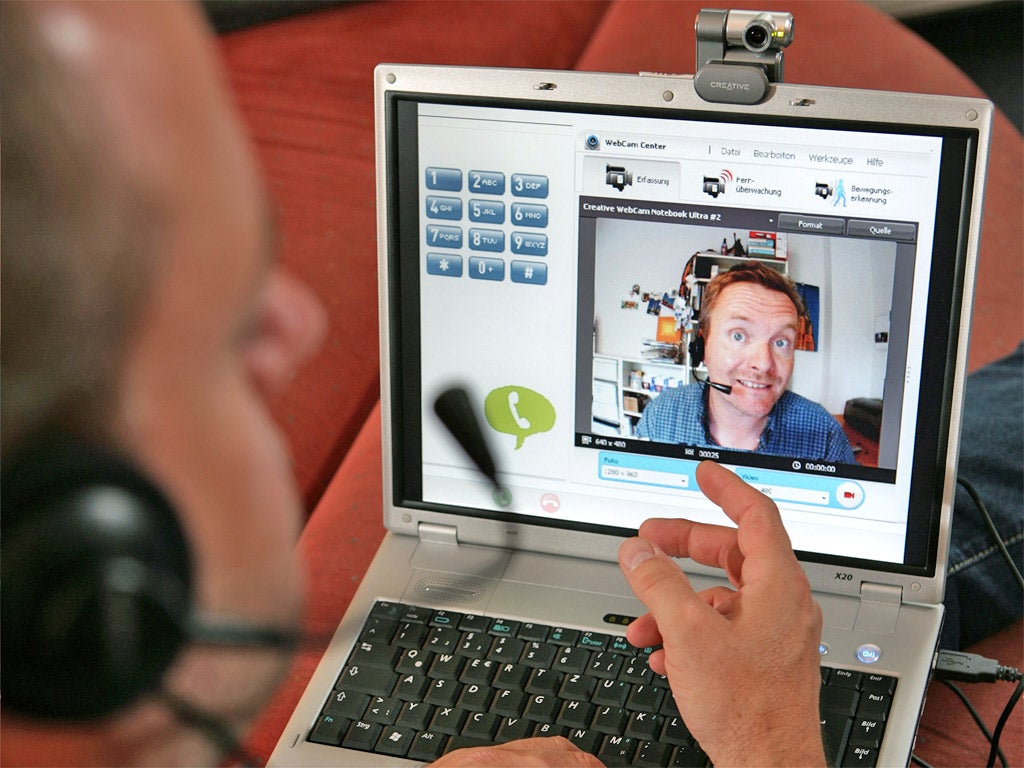Government retreats on digital 'Big Brother' plan
Home Secretary accused of mishandling surveillance proposals

Plans to allow the authorities to monitor the online activity of every person in Britain were pushed back last night after being condemned by MPs of all parties.
The Deputy Prime Minister, Nick Clegg, announced that the contentious measures would be published only in draft form and would be subject to widespread consultation – concessions that could delay the proposals for at least a year. In a letter to Mr Clegg published in The Independent today, 17 Liberal Democrat MPs welcomed his intervention but warned him their support could not be taken for granted on the issue.
A storm erupted this week after it emerged that legislation to allow the police, intelligence services, councils and other public bodies to obtain details of messages sent via Skype and social networks would be included in the Queen's Speech.
The disclosure provoked anger among Tory and Liberal Democrat MPs alike, who warned that the proposals contradicted the parties' opposition to a similar Labour scheme – and were not included in the Coalition Agreement. There have also been recriminations within the Coalition as Liberal Democrats – understood to have been backed by some Tory ministers – accused Theresa May, the Home Secretary, of mishandling the issue.
Mr Clegg told the BBC yesterday that the most contentious parts of the legislation would be published in draft form to enable "proper scrutiny and examination and stress-testing". He said the Government would "consult and think whether existing powers are sufficient", adding: "People should be reassured we will not ram something through Parliament."
His comments came just hours after Ms May made a passionate defence of the proposed measures – which the intelligence services originally wanted in place by the summer – as essential for tracking down criminals, paedophiles and terrorists.
The planned Bill would also reportedly allow GCHQ to obtain information "on demand" and in "real time" without a warrant, and require internet companies to install hardware tracking telephone and website traffic.
In their letter, the Liberal Democrat MPs make clear that Mr Clegg will have a rebellion on his hands if the Government allows a major expansion of surveillance.
They write: "Liberal Democrats in government will not follow the last Labour government by sounding the retreat on the protection of civil liberties in the United Kingdom. It continues to be essential that our civil liberties are safeguarded, and that the state is not given the powers to snoop on its citizens at will."
They continue: "It is absolutely vital that the public get a chance to see and debate the details of any proposals to extend state surveillance, not just being presented with a Home Office fait accompli. It is also essential that the initial plans include adequate safeguards – which should be stronger than the current weak controls."
David Cameron also sought to lower the temperature among his backbenchers yesterday, insisting he was opposed to creating a "snoopers' charter".
He said: "This is not about extending the reach of the state into people's data; it's about trying to keep up with modern technology."
The proposals would not allow the authorities to read the contents of messages, but to track whom internet users have contacted and when and where the contacts took place.
Last night the civil liberties group Big Brother Watch described the moves as a U-turn – an interpretation fiercely disputed by the Government.
Nick Pickles, the group's director, said: "This is a victory for everyone who cares not only about privacy, but living in a country where the Government does not put every one of its citizens under surveillance.
"If new powers are needed, then let the Home Office come and make the case. It isn't for innocent people to justify why the Government should not spy on us."
Stephen Williams, a Liberal Democrat MP, took a swipe at the Home Office's "inept" handling of the issue.
"If there has been an attempt to bounce us into backing this, then it has backfired, because any legislation will be scrutinised in incredible detail," he said.
Join our commenting forum
Join thought-provoking conversations, follow other Independent readers and see their replies
Comments
Bookmark popover
Removed from bookmarks